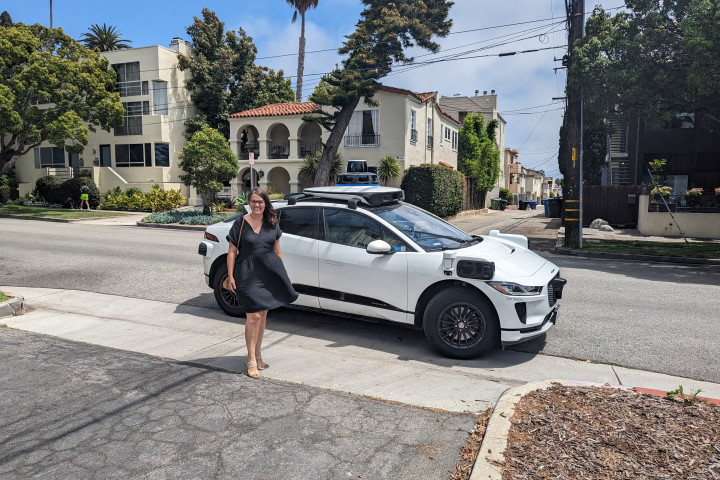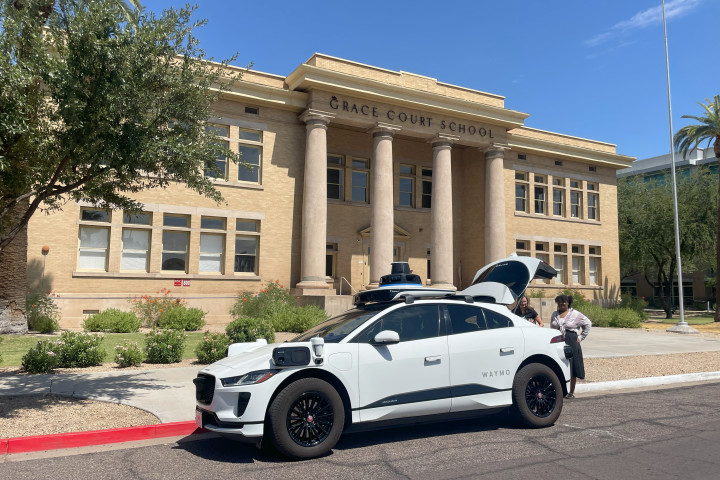People in Phoenix Share Their Hopes for Autonomous Vehicles
August 12, 2022

Let’s Talk Autonomous Driving, a Waymo-led public education campaign, is committed to fostering conversations around how this technology could shape the future of mobility. To drive this mission, we continue to talk with people about their impressions, experiences and hopes for autonomous driving technology.
We recently asked residents of Metro Phoenix what they think. Here’s why.
Autonomous driving technology company Waymo has operated its fully autonomous ride-hailing service, Waymo One, in the Phoenix East Valley since 2018. Waymo recently announced it will offer fully autonomous ride-hailing in Central Phoenix next. Leading up to a service launch, Waymo's electric Jaguar I-PACEs have been moving Trusted Testers, members of the public who ride in autonomous vehicles and provide feedback, around Central Phoenix for several months.
Here’s what Phoenecians said.
Fear of the unknown does not dissuade users
Many Phoenix pedestrians we spoke with have seen Waymo’s vehicles around the city. They noted, most often, the spinning lidar sensors fixed to the exterior of the vehicle -- including a conspicuous dome on its roof.
People in Phoenix said they were open to taking their own trips in a Waymo vehicle, if they had not already.
Waymo has been driving in Arizona since 2016, has logged more than 20 million on public roads, including more than 500,000 miles without an autonomous specialist in the front seat of the vehicle.
Autonomously driven vehicles could make roads safer
Safety is a foundational pillar of Waymo’s approach to developing autonomous driving technology. The technology is designed to be constantly vigilant, obey road rules, and even identify and respect other road users, from cyclists to pedestrians.
Autonomous driving technology could help complement Phoenix’s efforts to make areas like downtown Phoenix safer for other drivers, pedestrians and cyclists.
“I think anybody who cycles regularly runs into people not watching out for you or blocking the bike lane or sometimes being weirdly road rage-y about sharing the road,” shared a Phoenix-area cyclist named Jesús.

The downtown area’s busy roadways are just one of the reasons Metro Phoenix makes an ideal launch environment. Waymo’s operating system is specially designed to detect cyclists and follow local bike lane laws, making it safe to share the road.
“It could, in a good way I think, lead to traffic smoothing if the technology is set for that,” said another Metro Phoenix resident named Sam.
Increasing independence for people with disabilities
The top benefit people cited was the broadening of independence and autonomy for people with disabilities. One man, named Andy, shared a personal story of how his brother had lost the use of his left arm, and how he thought autonomous driving technology could help him maintain his independence.
“I think it would actually be good for people who couldn't drive themselves,” a Metro Phoenix resident named Brittney. “Just so they won't have to rely on family members who are busy and stuff like that, and give them more autonomy.”

Improving how we navigate cities
There is no doubt in Phoenicians’ minds: autonomous driving technology will change and improve how we get around. Working to complement public transportation, autonomous driving technology could expand access to a system’s service areas and reduce the need for personal transportation. In fact, one couple hopes that one day parents will no longer need to teach their children to drive.

“Teaching your kid to drive is the worst thing you have to do as a parent,” they added. “Worse than potty training!”
“I think it’s a great thing,” said another Phoenix resident, named Susan, who was using an assistive mobility device. “I think it’s an advance in the future and I think we should always be looking towards the future.”
Sign Up
Join us in the most important conversations about how autonomous driving technology may shape the future of safety, mobility, community, and society.


